A plant-based diet focuses on whole, minimally processed foods like fruits, vegetables, legumes, and whole grains, offering a wholesome and sustainable approach to healthy eating.
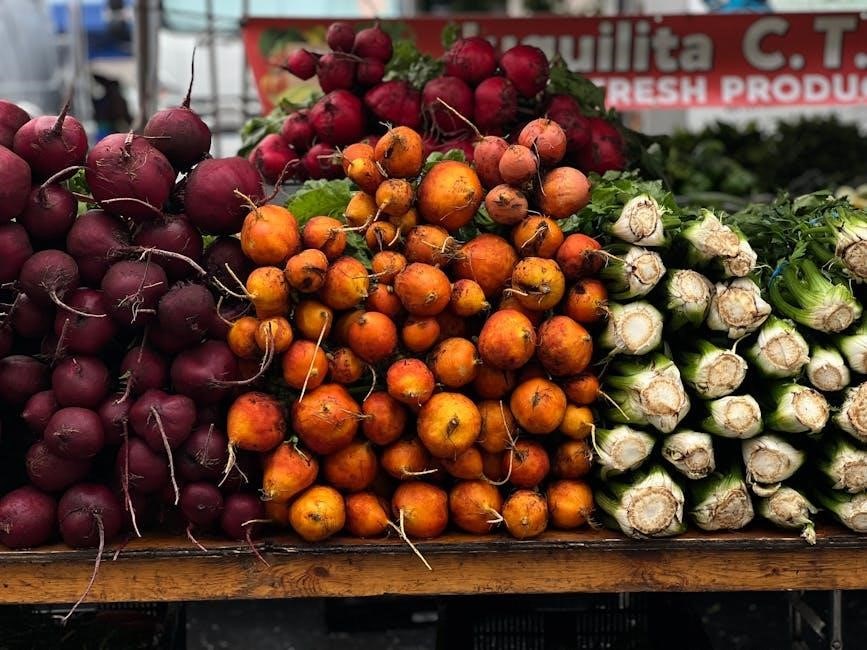
Plant-Based Diet Grocery List Categories
A well-organized plant-based diet grocery list includes categories like pantry staples, fresh fruits, vegetables, whole grains, legumes, nuts, seeds, spices, and plant-based dairy alternatives for balanced meals.
Pantry Staples
Pantry staples are essential for a plant-based diet, providing foundational ingredients for daily meals. These include whole grain pastas, brown rice, oats, quinoa, and barley. Canned goods like beans, lentils, chickpeas, and diced tomatoes are versatile and convenient. Nutritional yeast, a popular vegan favorite, adds a cheesy flavor to dishes. Baking essentials such as almond flour, coconut sugar, and baking powder are also key. Additionally, herbs and spices like turmeric, cumin, basil, and oregano enhance flavor without added salt or sugar. Stocking these items ensures a well-rounded and nutritious plant-based kitchen.
Fresh Fruits
Fresh fruits are a vibrant and essential part of a plant-based diet, offering natural sweetness and a wealth of vitamins, minerals, and antioxidants; Opt for seasonal varieties like berries, bananas, apples, pears, and watermelon for freshness and flavor. Berries such as strawberries, blueberries, and raspberries are rich in antioxidants, while citrus fruits like oranges and grapefruits provide vitamin C. Including a mix of tropical fruits like mangoes and pineapples adds diversity to your meals. Fresh fruits are perfect for snacks, smoothies, or adding natural sweetness to recipes.
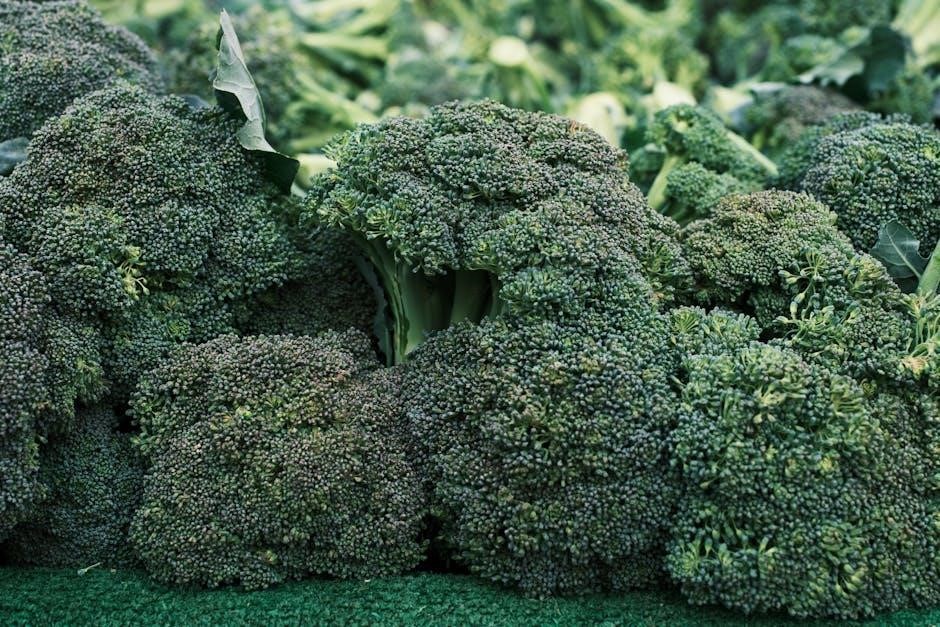
Vegetables
Vegetables are a cornerstone of a plant-based diet, offering a wide array of textures, flavors, and nutrients. Include leafy greens like spinach, kale, and broccoli for vitamins and minerals. Cruciferous vegetables such as cauliflower and Brussels sprouts provide cancer-fighting compounds. Root vegetables like carrots, sweet potatoes, and beets add natural sweetness and fiber; Allium vegetables like garlic and onions enhance flavor and offer health benefits. Incorporate colorful bell peppers, zucchini, and mushrooms for variety. Aim for a rainbow of vegetables to ensure a broad spectrum of nutrients and antioxidants for optimal health and vitality.
Whole Grains
Whole grains are a key component of a plant-based diet, providing essential nutrients, fiber, and energy. Include options like brown rice, quinoa, oats, barley, and bulgur for their rich mineral and vitamin content. These grains support healthy digestion and satisfy hunger. Use them as bases for meals or incorporate them into salads and stir-fries. Whole grains are versatile and nutritious, making them a foundational element of a balanced plant-based lifestyle. They are also rich in antioxidants and help maintain steady blood sugar levels for sustained energy throughout the day.
Legumes and Beans
Legumes and beans are protein-rich staples in a plant-based diet, offering high fiber and nutrients. Include varieties like lentils, chickpeas, black beans, and kidney beans for versatility. Use them in soups, stews, salads, or as a base for meals. These foods are budget-friendly and packed with antioxidants, supporting heart health and digestion. They also provide essential minerals like iron and zinc, making them a nutritious and sustainable choice for a balanced lifestyle. Incorporate them into your meals for a satisfying and healthy plant-based diet.
Nuts and Seeds
Nuts and seeds are nutrient-dense additions to a plant-based diet, offering healthy fats, protein, and fiber. Almonds, walnuts, chia seeds, and flaxseeds are excellent choices for snacks or adding crunch to meals. They support heart health and provide essential omega-3 fatty acids. Use them in smoothies, salads, or as toppings for oatmeal or yogurt alternatives. Opt for unsalted and unsweetened varieties to avoid added sugars and sodium. These versatile foods enhance flavor and texture while promoting overall wellness in a balanced plant-based lifestyle.
Spices and Herbs
Spices and herbs are essential for adding flavor to plant-based meals without relying on salt or sugar. Common additions include basil, oregano, cumin, turmeric, and ginger, which enhance dishes naturally. Chili flakes, black pepper, and bay leaves are versatile for seasoning soups and stews. Fresh herbs like cilantro, parsley, and dill add brightness to salads and sauces. These ingredients not only elevate taste but also provide antioxidants and health benefits, making them a cornerstone of a vibrant and nutritious plant-based diet.
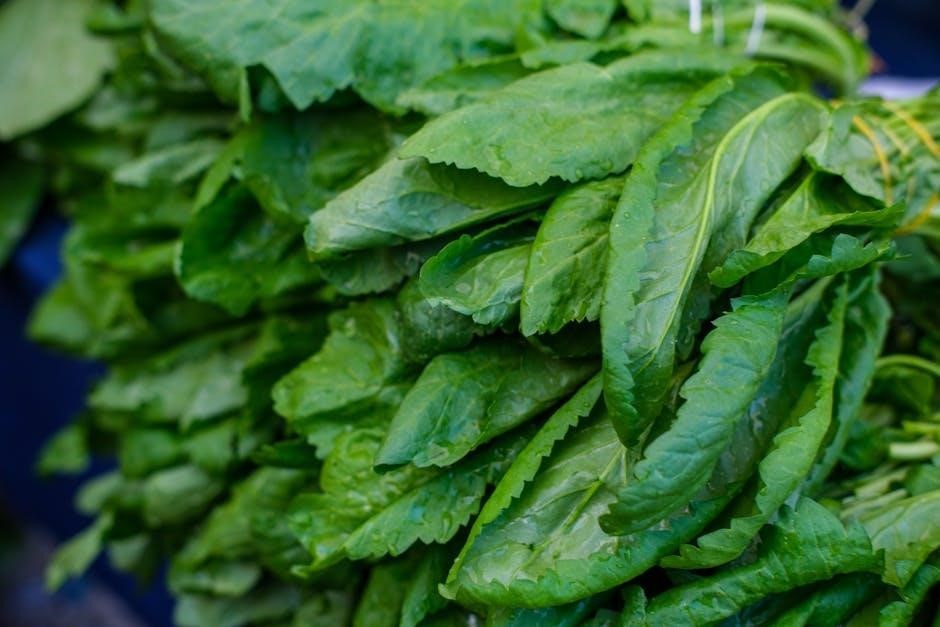
Plant-Based Dairy Alternatives
Plant-based dairy alternatives are versatile substitutes for traditional dairy products. Options include almond milk, soy milk, oat milk, and coconut milk, which are perfect for cereals, smoothies, and cooking. Vegan yogurts made from coconut or almond bases offer probiotic benefits. Cheese alternatives, crafted from nuts or soy, melt and taste like dairy-based cheeses. These products are free from animal-derived ingredients, making them ideal for those seeking cruelty-free, environmentally friendly, and healthier dairy options that align with a plant-based lifestyle.
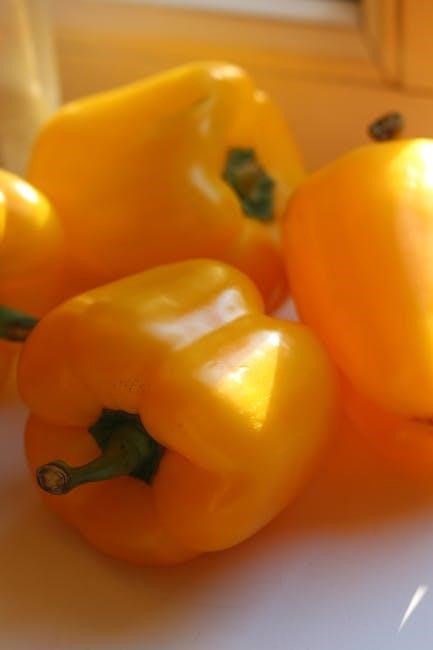
High-Protein Plant-Based Foods
Nuts, seeds, legumes, whole grains, tofu, and tempeh are excellent sources of protein in a plant-based diet, providing essential amino acids for muscle repair and growth naturally.
Legumes and Pulses
Legumes and pulses are cornerstone protein sources in plant-based diets, offering versatility and nutrients. Staples include lentils, chickpeas, black beans, and kidney beans. They are rich in fiber, vitamins, and minerals, making them ideal for soups, stews, and salads. Incorporating varieties like cannellini beans or edamame can enhance meal diversity. These foods are cost-effective and environmentally friendly, providing sustained energy and supporting overall health. Stocking different types ensures a protein-packed pantry for varied and nutritious meals.
Nuts, Seeds, and Nut Butters
Nuts, seeds, and nut butters are excellent sources of healthy fats and proteins, making them essential for a balanced plant-based diet. Almonds, walnuts, chia seeds, flaxseeds, and sunflower seeds are popular choices. Nut butters like peanut butter and almond butter are versatile for snacks and cooking; These items provide essential vitamins and minerals, supporting heart health and satiety. Opt for unsalted and unsweetened varieties to avoid added sugars and sodium, ensuring a healthier and more nutritious option for your daily meals and recipes.
Whole Grains and Quinoa
Whole grains and quinoa are fantastic sources of protein, fiber, and essential nutrients in a plant-based diet. Options like brown rice, quinoa, oats, barley, and bulgur provide structure and variety to meals. They are versatile for salads, stir-fries, and as side dishes. Quinoa, a complete protein, is particularly beneficial. Choose whole grains over refined ones to maximize nutritional benefits. Incorporating these into your diet ensures sustained energy and supports overall health, making them a cornerstone of high-protein, plant-based eating.
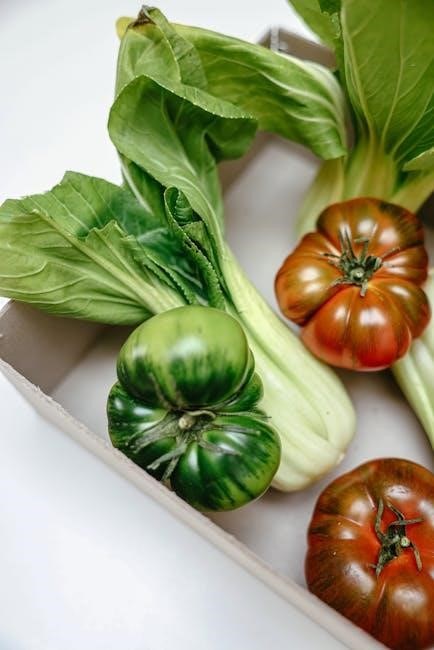
Tofu and Tempeh
Tofu and tempeh are versatile, high-protein plant-based staples made from soybeans. Tofu is an excellent meat substitute in dishes like stir-fries and curries, while tempeh offers a nutty flavor and firm texture. Both are rich in protein, iron, and calcium, making them ideal for a balanced diet. They are easy to incorporate into meals and can be marinated, baked, or sautéed. These foods are great for adding variety and nutrition to plant-based recipes, supporting overall health and wellness.
Seitan and Meat Substitutes
Seitan, made from wheat gluten, is a popular plant-based meat substitute with a chewy texture, often used in dishes like stir-fries and stews. Meat substitutes, such as Beyond Meat and Impossible Foods products, mimic the taste and texture of meat, offering convenience for those transitioning to a plant-based diet. These options are typically high in protein and can be incorporated into burgers, sandwiches, and other meals. They provide a satisfying alternative to traditional meat, making plant-based eating more accessible and flavorful.
Shopping Smart: Tips for Plant-Based Grocery Shopping
Plan meals, stick to your list, and focus on whole foods to save time and money. Explore store sections for plant-based staples and discounts. Download your free grocery list PDF for a seamless shopping experience.
Meal Planning and List Preparation
Meal planning is essential for a smooth transition to a plant-based diet. Organize your weekly meals, create a detailed grocery list, and stick to it to avoid impulse buys. Focus on whole foods like fruits, vegetables, grains, and legumes. Plan balanced meals to ensure variety and nutrition. Use a plant-based diet grocery list PDF for inspiration and organization. Preparing ahead saves time, reduces stress, and helps maintain dietary consistency. A well-planned list ensures you never miss essential items!
Budget-Friendly Options
A plant-based diet can be cost-effective by focusing on whole foods like beans, grains, and vegetables. Planning meals and buying in bulk reduces expenses. Opt for seasonal produce, as it’s often cheaper and fresher. Avoid processed foods, which tend to be pricier. Incorporate staples like oats, lentils, and brown rice, which are both affordable and nutritious. Use herbs and spices creatively to add flavor without extra cost. A well-organized grocery list ensures you stay within budget while maintaining dietary balance.
Reading Nutrition Labels
Reading nutrition labels is crucial for making informed choices. Look for added sugars, sodium, and unhealthy fats. Avoid products with artificial flavors, colors, and preservatives. Check for certifications like “low sodium” or “whole grain” to ensure quality. Be mindful of portion sizes and serving counts. Opt for items with fewer, recognizable ingredients. This helps maintain a balanced and nutritious plant-based diet while avoiding overly processed foods.
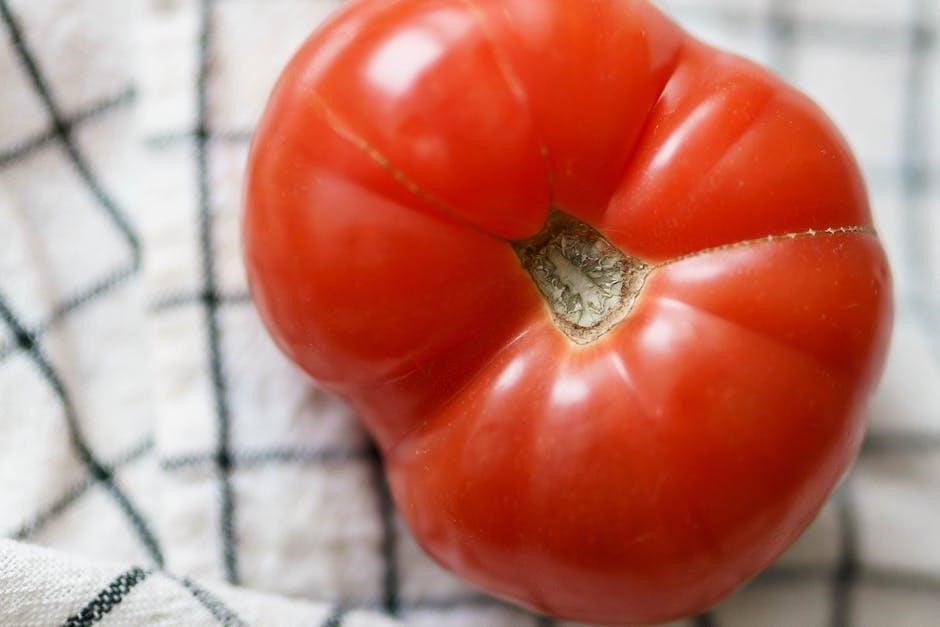
The Benefits of a Plant-Based Diet
A plant-based diet promotes health, supports environmental sustainability, and offers cost-effective options, contributing to overall well-being and a healthier planet.
Health Benefits
A plant-based diet reduces the risk of chronic diseases, such as heart disease and diabetes, by promoting weight management, lowering blood pressure, and improving blood flow. It is rich in fiber, vitamins, and antioxidants, which support immune function and overall well-being. By avoiding processed and high-sugar foods, plant-based eating helps maintain healthy cholesterol levels and reduces inflammation. This dietary approach can also improve digestion and energy levels, making it a sustainable choice for long-term health and longevity.
Environmental Impact
Plant-based diets significantly reduce greenhouse gas emissions, as animal agriculture is a major contributor to carbon emissions. By choosing plant-based foods, individuals conserve water and land, as growing plants requires fewer resources than raising livestock. This dietary choice also decreases pollution from fertilizers and pesticides used in animal farming. Additionally, plant-based eating supports biodiversity by reducing deforestation for grazing and feed crops. Overall, adopting a plant-based diet is a powerful way to promote environmental sustainability and combat climate change effectively.
Economic Advantages
Plant-based diets can be cost-effective, as whole foods like beans, grains, and vegetables are often cheaper than meat. Planning meals around seasonal produce and bulk purchases further reduces expenses. Additionally, plant-based eating can lower healthcare costs by reducing chronic disease risks, such as heart disease and diabetes. This approach promotes long-term financial savings, making it accessible and sustainable for individuals and families. Embracing plant-based options is a smart investment in both health and budget, offering economic benefits that extend beyond the grocery list.
Embracing a plant-based diet offers numerous benefits, from improved health to environmental sustainability. By focusing on whole, nutrient-rich foods and utilizing a well-organized grocery list, individuals can transition smoothly to this lifestyle. The economic advantages, including cost savings and reduced healthcare expenses, further enhance its appeal. With the abundance of resources and guides available, adopting a plant-based diet has never been more accessible or rewarding, making it a wise choice for long-term well-being and a healthier planet.
